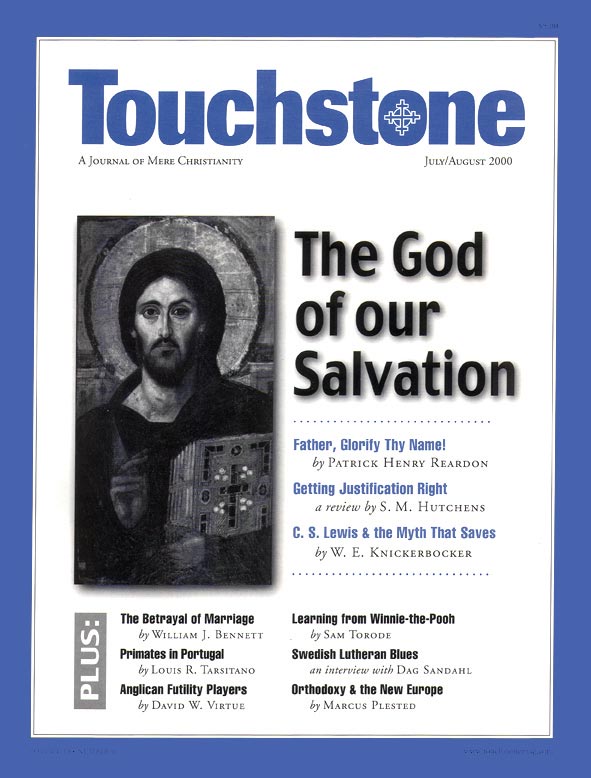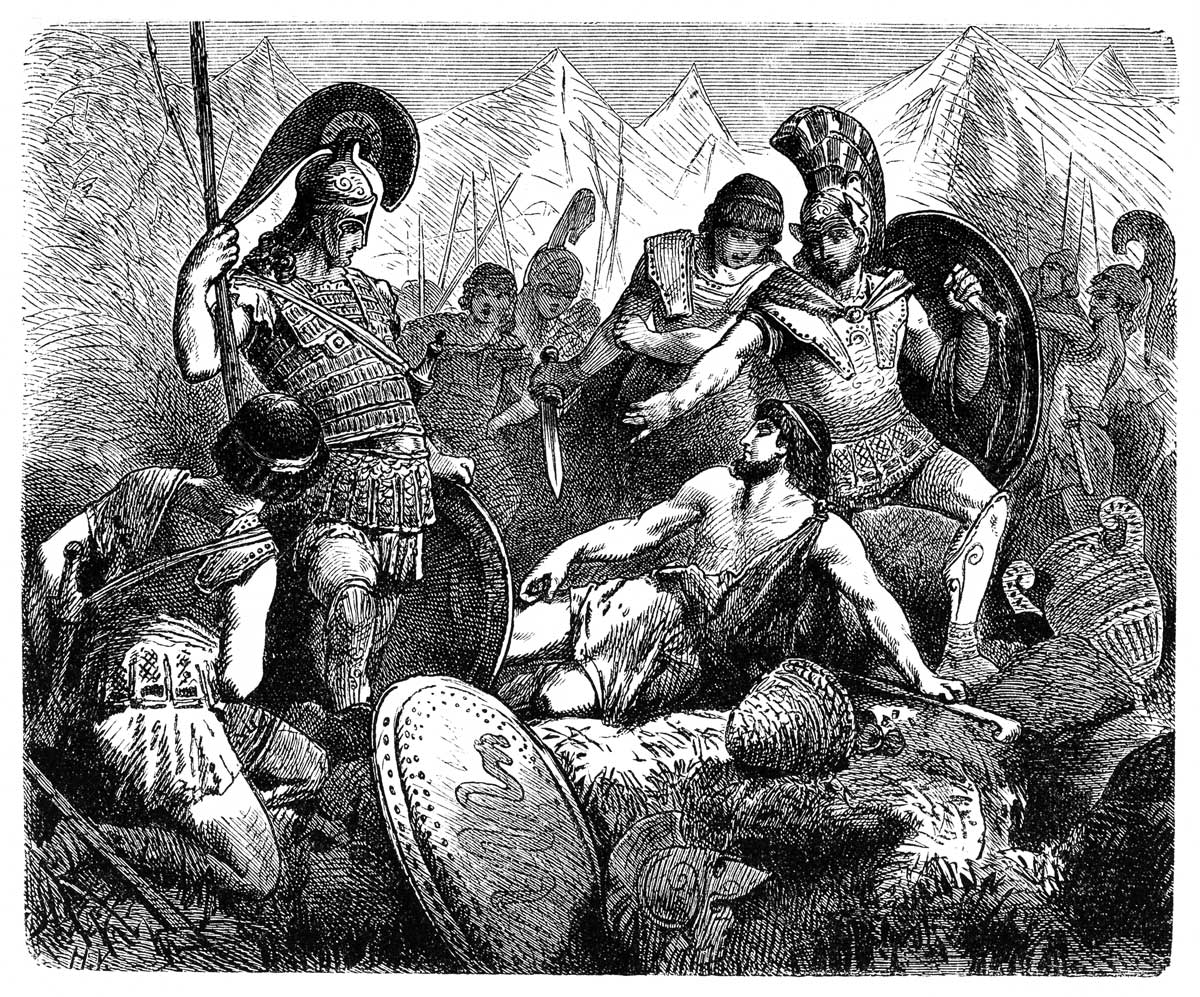Getting Justification Right
Getting the Gospel Right: The Tie That Binds Evangelicals Together
by R. C. Sproul
Grand Rapids, Michigan: Baker Book House, 1999
(206 pages; $16.99, cloth)
Union with Christ: The New Finnish Interpretation of Luther
Carl E. Braaten and Robert W. Jenson, eds.
Grand Rapids, Michigan: Wm. B. Eerdmans Publishing Co., 1998
(182 pages; $21.00, paper)
by S. M. Hutchens
Getting the Gospel Right is a contribution to the long-running and frequently tense conversation about Evangelicals and Catholics Together and its sequel The Gift of Salvation, manifestos produced in the nineties by Evangelicals and Roman Catholics attempting to establish co-belligerency in the public square on the basis of common faith and morals. R. C. Sproul, an influential Reformed theologian, denies these documents can accomplish their stated purpose because Roman Catholicism and Evangelicalism do not share the same faith. Sproul finds no evidence in The Gift of Salvation, which he examines in detail here, that Rome has changed the beliefs the Reformation rejected. He must conclude that their progeny remain divided, not as one group of Christians from another, but as true and false churches.
This is not, he is careful to say, a judgment on the souls of individual Catholics, who may be believers despite the teachings of their church. Rather, it is to say that the Church of Rome lacks one of the vital aspects of a true church—right teaching and preaching of the gospel of Christ. Essential to the gospel, Sproul says, is justification by faith alone, which in turn requires a doctrine of imputed rather than infused righteousness. By teaching that the righteousness whereby we are made acceptable to God is infused into the believer by sacramental grace so that he is made able to merit justification by works, Rome has abandoned the truth: that justification issues from a forensic declaration from God, received by faith apart from works, in which human merit figures not at all.
This reviewer, a Christian who is neither Roman Catholic nor Eastern Orthodox, has spoken to this conviction several times in the pages of this journal. I am confronted with it as one of those ecumenical difficulties whose persistence among Protestants must be acknowledged, but for which I can see no good reason. The gravity of the issue, however, is clearly demonstrated in Dr. Sproul’s exposition. If indeed the Roman Catholic Church is a false church, then the Christian’s duty toward Rome is not to cooperate with her, but to win as many as possible away from her errors and convert them to the true evangelical faith. The Catholic is to be approached much as one would a Mormon or a Jehovah’s Witness, for his mistake is of similar proportions.
If this is the case, also the notion of a “mere Christianity” that may be shared by Protestants, Catholics, and Orthodox is chimerical, for to the degree a man is a Roman Catholic he is not a Christian, and, as the Westminster Confession asserts, in full accord with the logic of this conviction, the head of the Roman Catholic Church must be none other than “that Antichrist, that man of sin and son of perdition, that exalteth himself in the Church against Christ, and all that is called God.” While one may be grateful for the gentlemanly and nuanced tone used throughout this book, for the author’s candid acknowledgment of Catholic virtues, and his hope for the individual Catholic, the belief that stands behind them is that the truly Evangelical and the truly Roman Catholic have no fellowship in the gospel. This is a devastating charge, however politely it is made. It cannot go unanswered, especially by the editors of a journal whose labors are vain if he is correct.
Christ, the Righteousness of God
Sproul outlines the problem clearly. The Gift of Salvation affirms that justification is entirely God’s gift—of “sheer graciousness.” It is forensic—proclaimed by a competent authority, as in a legal forum—since “God, on the basis of Christ’s righteousness alone, declares us to be no longer his rebellious enemies but his forgiven friends, and by virtue of his declaration it is so.” But this, Sproul rightly notes, was never in dispute.
The raging issue of the Reformation was the ground by which God declares us just. The Reformers insisted that the sole ground of our justification is the righteousness of Christ wrought for us in his life of perfect obedience. This is done by imputation. This means that God transfers to our account the righteousness of Christ wrought in his own person and that this righteousness is “counted” or “reckoned” to us by imputation. . . . Rome, on the other hand, believes God will declare just only those who are really just, who are inherently just. . . . Hence the issue was this: Is our justification based on the righteousness of Christ in us or the righteousness of Christ for us? . . . The Reformation doctrine is one of synthetic justification, meaning simply that we are justified by virtue of something added to our person that is not inherently ours. In contrast, the Roman view is one of analytical justification, by which we are declared to be just because analysis indicates we are truly just. . . . (64–65).
If imputation is essential to sola fide and sola fide is essential to the gospel, then manifestly, as long as the doctrine of imputation remains on the table, the gospel lies there with it (82).
S. M. Hutchens is a senior editor and longtime writer for Touchstone.
subscription options
Order
Print/Online Subscription

Get six issues (one year) of Touchstone PLUS full online access including pdf downloads for only $39.95. That's only $3.34 per month!
Order
Online Only
Subscription

Get a one-year full-access subscription to the Touchstone online archives for only $19.95. That's only $1.66 per month!
bulk subscriptions
Order Touchstone subscriptions in bulk and save $10 per sub! Each subscription includes 6 issues of Touchstone plus full online access to touchstonemag.com—including archives, videos, and pdf downloads of recent issues for only $29.95 each! Great for churches or study groups.
Transactions will be processed on a secure server.
more on theology from the online archives
more from the online archives
calling all readers
Please Donate
"There are magazines worth reading but few worth saving . . . Touchstone is just such a magazine."
—Alice von Hildebrand
"Here we do not concede one square millimeter of territory to falsehood, folly, contemporary sentimentality, or fashion. We speak the truth, and let God be our judge. . . . Touchstone is the one committedly Christian conservative journal."
—Anthony Esolen, Touchstone senior editor











